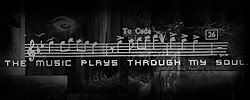Decisions.... Decisions....
I have been thinking about this for awhile, but I DESPERATELY need a creative outlet! I am stuck between some sort of freelance/creative writing class or an art class. Here are a few of the course descriptions within the Boston area.
CREATIVE WRITING WORKSHOP: This workshop is open to creative writers at all skill levels and puts a strong focus on the practice of crafting scenes - the basic building block of short fiction, memoirs and novels. Motivated students will leave the class with a well-crafted, well-plotted scene that they can later expand into a short story or book chapter. Additionally, students will discover and hone writing tools, share in group workshops and develop a place for writing in their lives. An optional class blog will allow interested class members and the instructor to share thoughts between sessions. Please bring a notebook with plenty of paper or a laptop.
FREELANCE WRITING: Getting paid to write articles for newspapers, magazines, newsletters, and the web is simpler than you think -- not to mention fun, exciting, and potentially lucrative! If you have ever considered working as a freelance writer, then this is the class for you. Learn how to develop original story ideas, identify a market, and hone your pitches for specific publications. This class will teach you how to get the attention of editors and build relationships for long-term work. There will also be an opportunity to have your ideas and pitches critiqued. Previous class attendants have gone on to write for "The Boston Globe," "The Boston Phoenix," and other publications.
FREELANCE WRITING FOR THE WEB: Whether you dream of seeing your byline, earning extra money from writing, or boosting your pitch skills, this is the class for you. Writing for the web has many advantages for freelancers; there are more opportunities for beginning writers, and the more immediate timeline makes it a great way to build your portfoilio. Learn the stylistic differences of writing for the web vs. print, how to find and study writing markets, brainstorm for ideas, and write a compelling query letter to generate interest in your work. Whether you have existing writing pieces, or want to start completely from scratch, this course is appropriate for you.
POETRY WORKSHOP: Share your poems with an audience of dedicated peers in this workshop that began meeting in 1957. The time-honored tradition continues in an encouraging and inspiring environment for poets working at all levels -- from the beginner to the more practiced hand. Led by an experienced and published poet, Tom Daley, the workshop aims to create an atmosphere of encouragement, good humor, collegiality, and artistic rigor. Here is an opportunity to share and strengthen your poems, hone your voice and craft, and give and receive constructive feedback in community with other poets. Workshop includes weekly voluntary writing assignments and readings. Workshop participants should bring thirteen copies of a recent, short poem to share at the first class.
WATERCOLOR: Examine the fundamentals of watercolor painting, including basic approaches to color and value. Through a series of projects, develop your sensitivity to the medium, and begin to understand how to use the brush, paint, and paper to achieve the best results. Uncover the basic elements of composition, and use these elements as a foundation for your painting. No previous painting experience is required.
DRAWING: Working primarily in charcoal and pencil, explore contour, light and shadow, proportion, perspective, and composition while drawing from still-life objects and the human figure. Begin with simple drawing exercises, then advance to more finished drawings. Also, discuss drawing media and papers. Bring an 18- by 24-inch newsprint pad, an ebony pencil, vine charcoal, compressed charcoal, a hard eraser, and a kneaded eraser. The tuition includes a fee for models.
INTRODUCTION TO ABSTRACT WATERCOLOR: What is Abstract painting?
What is this concept 'Abstract' and how do we apply it in modern painting?
Most generally we take it to mean there is no recognizable image in the painting, yet even with no recognizable image there is still is the possibility to present balance, unity, dimension, and spirit and numerous other qualities. To begin to approach the concept of abstract we dig deeper into the fundamentals of painting itself. Fundamentals such as color, form, space, and dimension. Projects for this class will be based in phenomena and imagination and will include such themes as Green Storm, Frozen Light, The Sound in the Dark. The course will use watercolor as a medium, and we will focus on using spontaneity and transparency two of watercolors greatest attributes.
So there you have it! So any options! So many great classes! If I could, I'd take EVERY SINGLE ONE! I will keep you posted on my decision.
ŵù gamßina @ 2:34 PM



